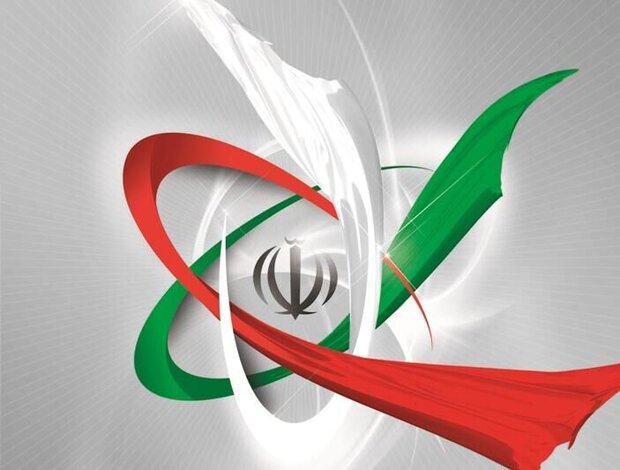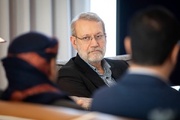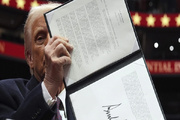In a press conference on Sunday attended by Deputy Foreign Minister Abbas Araghchi, spokesman for the Atomic Energy Organization of Iran, Behrooz Kamalvandi, and the cabinet spokesman Ali Rabiei, the Islamic Republic of Iran announced the second stage of the scaling down its JCPOA commitments.
As announced before, Iran will increase its enrichment level from today, said Araghchi at the presser today.
He stressed that the reduction of commitments does not violate the nuclear deal, but is based on Articles 26 and 36 of the agreement itself.
He also added that the reduction of Iran's commitments will continue every 60 day.
Iran has one single voice when it comes to the JCPOA, Araghchi stressed.
"The JCPOA is an important document and we want it to survive, but our demands must be met, otherwise we will reconsider our commitments to the JCPOA. If European countries fail to fulfill our demands, we will continue with this trend," the Iranian diplomat added.
"Tomorrow, when the IAEA takes the sample, we have gone beyond the 3.67% limit," Kamalvandi said at the presser, noting that the reductions this time will take immediate effect.
Our uranium enrichment and stockpile are on a rising trajectory, the AEOI spokesman said.
"We have to take into account the country's needs and requirements," he added.
Kamalvandi also maintained that Iran is capable of restoring the Arak reactor to its original design, and will do so based on its needs.
He also noted that the country had not yet decided on the level of enrichment for the Tehran research reactor.
Iran has previously said it needs five-percent enrichment for its Bushehr Nuclear Power Plant (NPP) and 20-percent for Tehran research reactor.
Kamalvandi said that there is sufficient 20% enriched uranium for reactor fuel to meet the country's needs, adding that "our focus right now is on fuels for power plants. Enrichment above the 3.67% has two benefits for us: one, it meets the country's need for power plant fuel, and two, it paves the way for production of higher enriched fuel if needed."
Iran and EU are still in contact despite the Europeans' failure to meet our demands, said Araghchi, adding that the US is welcome to join the talks granted that it first removes the sanctions against Iran. He stressed, however, that this does not mean that there will be another 5+1, as the US has already left the JCPOA, but it could take part at the talks after it removed the sanctions.
Doors of diplomacy are still open, but new initiatives are required, Araghchi stressed.
Regarding the EU's trade mechanism for Iran, INSTEX, aimed at easing trade transactions with the Islamic Republic in the face of US sanctions, Araghchi said that Iran has not pinned its hope on the financial mechanism.
Back in May, exactly one year after the US’ unilateral withdrawal from the Iran nuclear deal, Iran announced its decision to suspend the implementation of some of its commitments in response to the US’ withdrawal and Europe’s failure to comply with its own JCPOA commitments regarding Iran’s economic interests.
The Islamic Republic’s first step in scaling down its JCPOA commitments came on July 1 as the country surpassed the uranium stockpile limit set under the nuclear deal from June 27.
In the second stage that was announced today, Iran said it would increase the purity of its enriched uranium, no longer sticking to the 3.67% limit it had agreed to in the deal.
Meanwhile, President Rouhani had stressed that the reductions to the JCPOA commitments can be reversed once the European signatories to the deal live up to their commitments and secure Iran’s economic interests.
EU announced that its trade mechanism for Iran, INSTEX, has become operational after a long period of delay, but Iran says the mechanism is not sufficient to cover all of Iran’s economic relations.
During a phone call with French President Emanuel Macron on Saturday night, President Rouhani called on the European Union to act on its commitments to the nuclear deal and pointed to ending sanctions on Iran as a possible a way to salvage the faltering accord.
MS/LIVE
























Your Comment